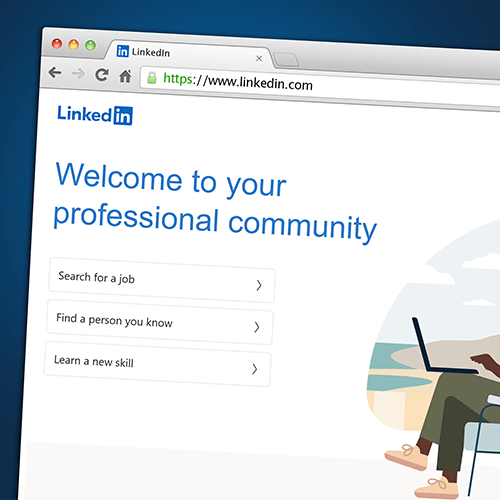
Understanding which types of social media content to focus on is pivotal for maximizing brand awareness and lead generation for your company. With marketing budgets often scrutinized for the highest possible ROI, it’s essential for B2B companies to select content that aligns closely with business goals and audience needs.
Crafting the right types of B2B social media posts can help your sales team drive meaningful interactions that can convert into real business opportunities. As social media platforms like LinkedIn and Facebook turn into powerful tools to support professional networking and brand communication, the need to pinpoint the most effective content types cannot be overstated.
Learn how to develop the right approach to social media marketing. Use our guide to ensure that every dollar spent on social media marketing can extend your brand’s reach and support customer acquisition.
B2B Social Media Marketing Starting Point: Understand Your Audience
Before you come up with a social calendar, draft copy, select images, and schedule social posts, you need to understand who you’re talking to. Deeply understanding your target audience on social media is the first step in crafting an effective B2B social media strategy:
- Who are they?
- What challenges do they face?
- How can your products or services solve their problems?
Answering these questions can help you tailor your to meet your audience’s specific needs and interests. You’ll ensure that every blog post, video, or tweet shared through your social media accounts adds value to your audience’s professional lives.
Identifying the Right Social Platforms
Not all social platforms are created equal, especially in the B2B realm. Platforms like LinkedIn, known for its professional networking, are often more effective for B2B companies than, say, Twitter or TikTok.
Your platform choice should be dictated by where your target audience spends their time and engages with content most actively. Our digital marketing agency can help you identify where to spend your time and resources to maximize your marketing budget.
Types of Content That Drive Engagement
Now, to answer your question, let’s dive into the types of content and social posts you should focus on – whether you are looking to build brand awareness, drive conversions, or both.
Remember that to maintain a robust social media presence, you need to diversify the types of content you post. Here are several types of content that have proven effective for B2B companies.
Educational Content
Educational content positions your company as a thought leader and a helpful resource, making it highly valuable. Whether it’s how-to guides, webinars, or infographics, providing content that helps solve problems or educates your audience on industry best practices can set you apart from competitors.
Industry News
Sharing industry news is another way to keep your audience informed and show that your brand stays on the cutting edge. It demonstrates your industry expertise and keeps your audience coming back for timely insights they might not get elsewhere.
Behind-the-Scenes Content
Transparency builds trust. By sharing behind-the-scenes content about your company or highlighting employee stories, B2B companies can humanize their brand and create a stronger connection with their audience.
A sample of social posts may include content centered around company events, day-to-day operations, or the people behind your products or services. For example, sharing short videos with testimonials from key team members can be impactful to humanize your brand in the eyes of your prospects and customers.
Thought Leadership
Articles and blog posts that express thought leadership draw in readers who value insights into industry trends and challenges. These posts can enhance your reputation as an innovator and a leader in your field.
You can mix this up by sharing links to content generated by your company and third-party articles. A healthy mix of blog posts from your website and articles from other reputable websites will keep your content fresh and engaging.
Social Proof
Case studies and success stories are forms of social proof that demonstrate the value of your solutions for actual customers. Sharing these stories can significantly influence prospective customers by showing real-world examples of your company solving problems similar to those they might be facing.
User-Generated Content
Encouraging user-generated content can amplify your credibility and engage your audience. When customers post about their positive experiences with your brand, it is a powerful validation that will likely attract others within your industry.
Video Content
Video is a dynamic way to present information to a captive audience. It can be particularly effective for B2B companies looking to explain complex solutions in an engaging way.
Product demonstrations, interviews with experts, or even Q&A sessions can provide deep insights in a format that today’s social media audience appreciates.
Podcasts
Podcasts are an increasingly popular medium among professionals seeking to make the most of their time. Sharing links to your latest podcast episode – or third-party episodes from industry experts – can be a great way to highlight industry issues, share success stories, or promote expert interviews.
Regular Updates on Company News
You will want to keep your audience informed about new products, services, or updates. Regular announcements – such as revealing a new service at an upcoming trade show – keep your audience aware of your latest offerings and innovations.
Showcasing new features, enhancements, or in-person appearances can stimulate interest and encourage discussions among industry peers on social platforms. A consistent stream of updates will reinforce your company’s commitment to growth and customer satisfaction, which will reflect positively on your brand.
Additionally, each update provides a fresh touchpoint for engagement. You can invite feedback and foster a sense of community around your company. These outcomes are invaluable for long-term relationship building and customer loyalty.
Turn B2B Social Media Posts into Fresh Business Opportunities
A successful B2B social media strategy hinges on knowing your audience and delivering a variety of content that educates, informs, and engages.
By diversifying your B2B social media posts — from educational content to a behind-the-scenes look at your production floor – you can strengthen your social media presence and create stronger connections with readers.
At Marketing Refresh, we understand the value of social media in helping sales and marketing teams achieve their goals. Our highly capable team can manage the entire process to help you realize the results you’re looking for:
- Identify your target audience
- Evaluate how often you should post and which platforms to utilize
- Manage a social media content calendar
- Write compelling social copy
- Select the ideal visuals
- Schedule social posts through our social media management platform
- Measure the results and refine the process
We’ll work with your marketing budget to craft and implement the ideal social media strategy for your business. Talk to us today about using social media to maximize ROI on your marketing dollars.
Frequently Asked Questions
- What is the most effective type of content for B2B social media posts?
Educational content and thought leadership posts are typically the most effective types of posts. They provide real value to your audience and help establish your company as an industry leader.
- How often should B2B companies post on social media?
The frequency of posts can vary based on your industry, budget, and the selected platform. In general, you want to post consistently daily, a few times per week, or weekly to keep your audience engaged and your social media presence strong.
- Can social media influence B2B purchasing decisions?
Absolutely, social media allows companies to build trust, demonstrate expertise, and maintain direct engagement with potential customers. Each of these elements can influence purchasing decisions.
- Is video content really effective for B2B companies?
Yes, video content can effectively convey complex information in an engaging way. Video is ideal for demonstrating products or services, showcasing your space, and providing valuable insights about industry topics.


